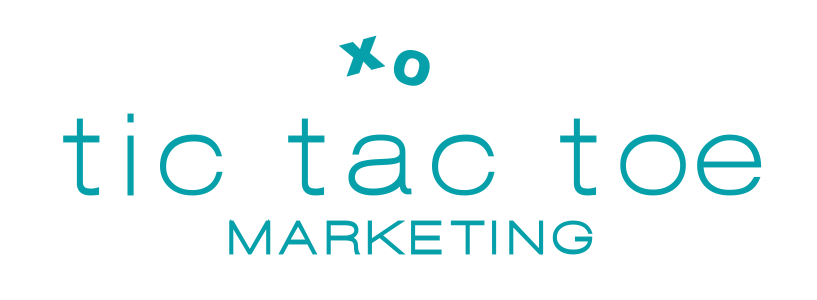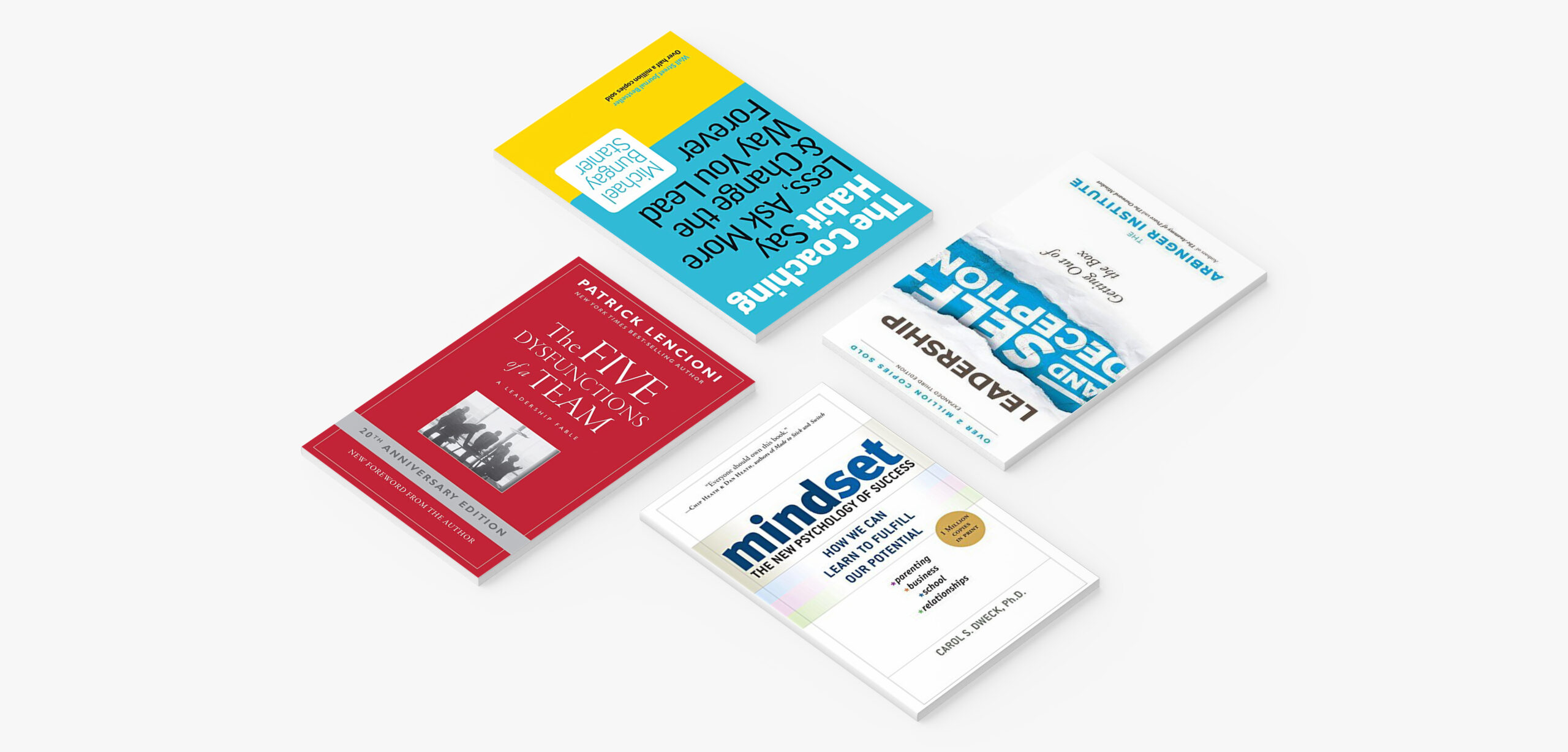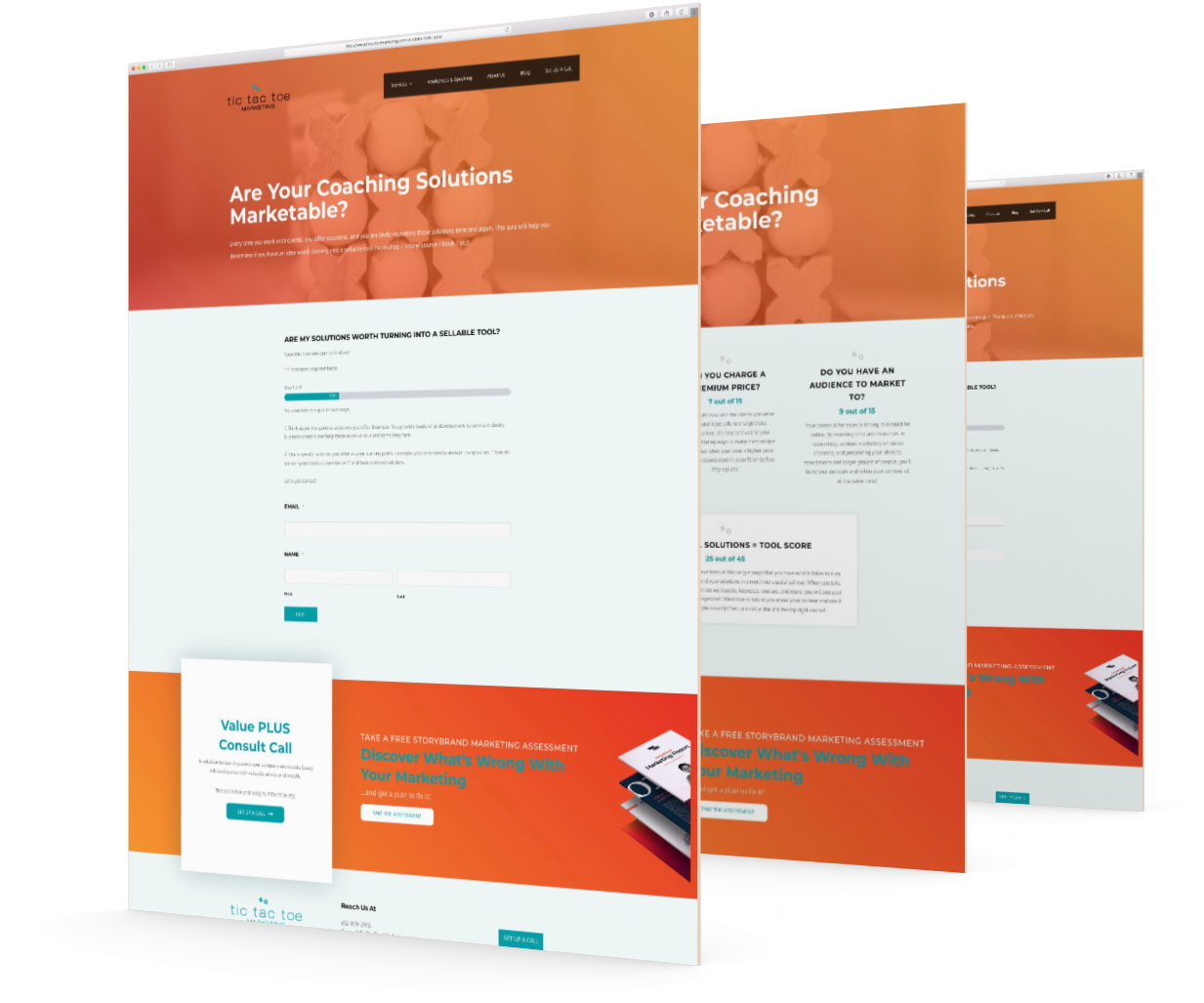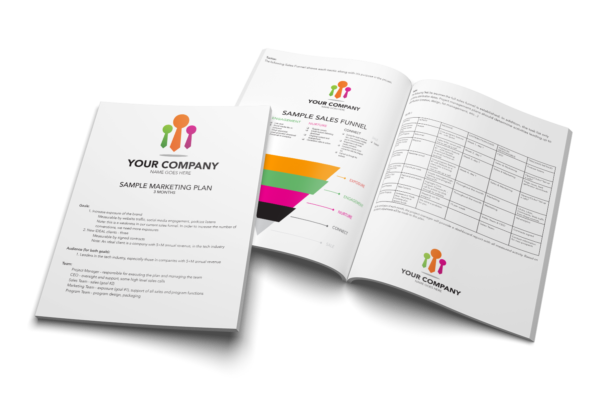Importance of coaching books
Coaching is a powerful tool for helping people achieve their personal and professional goals. Whether you’re a new coach, executive coach, life coach, sports coach, or any other kind of coach, this list of the best coaching books can help you hone your skills and become more effective in your role. Truly masterful coaching weaves your vast knowledge, learned from others, into how you guide your clients.
Why the best coaching books should be a part of a coach’s arsenal
Successful coaches are committed to lifelong learning. This list of the best coaching books can be an incredibly valuable tool for coaches in a number of ways. To be frank – reading makes you a better coach and a better person. And, when you lean into the work of these must-read books in your own practice, you have so many resources you can share with the clients you serve. However, the best coaching books aren’t a substitute for great listening, training, practicing and honing your craft. Being the best in your niche coaching industry takes a lot of time and effort. For the best coaches, having a library of books is just one of the core elements of their success.
Knowledge and Insight
Books can provide an effective coach with a wealth of knowledge and insight on a wide range of topics related to coaching, including leadership, communication, motivation, goal-setting, and more. Reading books written by experts in these areas can help coaches deepen their understanding and expertise, which can ultimately benefit their clients.
Inspiration and Ideas
This list of the best coaching books can also be a source of inspiration and new ideas for coaches. By reading about the experiences and perspectives of others, coaches can gain fresh insights and approaches that they can use to help their clients achieve their goals. I would argue that how much time you spend reading these books is in direct proportion to your confidence in coaching.
Professional Development
Coaches need to engage in ongoing professional development to stay current and effective in their practice. Reading the best coaching books can be a valuable part of this process, helping coaches expand their knowledge and skills and stay up-to-date with the latest research and best practices.
Personal Growth and Self-Improvement
Finally, reading books can be a powerful tool for coaches’ personal growth and development. By exploring new ideas and perspectives, coaches can gain greater self-awareness, empathy, and understanding of themselves and others, which can ultimately help them better serve their clients. Self-help books have been around a long time. You can use these in your own practice too – having the knowledge of great resources to offer during a coaching session sets you apart from your competition.
Understanding the different types of best coaching books
There are many different types of coaching books and lots of great examples in this article about the best coaching books. Each type is designed to provide coaches with specific information and tools to help them improve their coaching practice. If stepping into a book store or browsing online is overwhelming, this is a great place to start.
Leadership Books: Books focused on leadership coaching provide coaches with strategies for helping business leaders develop their leadership skills, build stronger teams, and achieve their goals. These are especially popular in executive coaching.
Performance Coaching: Performance coaching books focus on helping coaches develop strategies for helping clients improve their performance in specific areas, such as sports, business, or personal development. Performance coaching books are applicable for all leaders, but especially managers.
Communication Coaching: Communication coaching books provide coaches with tools and techniques for improving their clients’ communication skills, including active listening, effective feedback, and conflict resolution.
Career Coaching: Career coaching books provide coaches with guidance on how to help clients identify and achieve their career goals, including job search strategies, interview preparation, and networking.
Mindfulness Coaching: Mindfulness coaching books focus on helping coaches develop their clients’ mindfulness skills, which can help them reduce stress, improve focus, and develop greater emotional intelligence.
Personal Development Coaching: Personal development coaching books provide coaches with tools and techniques for helping clients improve their overall well-being, including self-care, goal-setting, and positive thinking.
Business Coaching: Business coaching books focus on helping successful coaches develop their clients’ business skills, including entrepreneurship, marketing, and financial management.
The following list of books will create a powerful coaching library.
Best Coaching Books for Personal Development
“Leadership and Self-Deception: Getting Out of the Box” by The Arbinger Institute
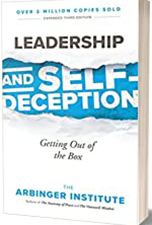
Personal development books are everywhere. This book leads the list because it is my absolute favorite, must-read, ultimate guide to personal development. It offers a unique perspective on coaching by emphasizing the importance of self-awareness and personal growth. The authors argue that many coaching challenges stem from our own tendency to see others as objects rather than people. By overcoming this “self-deception,” great coaches can become more effective at helping their clients achieve their goals.
“The Art of Possibility: Transforming Professional and Personal Life” by Rosamund Stone Zander and Benjamin Zander
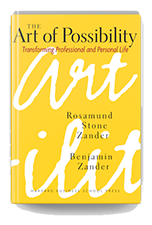
This book made the list of best coaching books because it offers a creative and inspiring approach to coaching by encouraging readers to think beyond their limitations and embrace new possibilities. The authors provide practical tools and techniques for helping human beings reframe their perspectives and overcome obstacles to success.
“The 7 Habits of Highly Effective People” by Stephen R. Covey
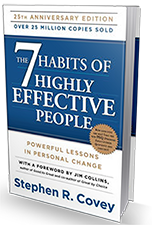
This book offers practical advice, essential skills and strategies for personal and professional success based on the idea that true effectiveness comes from a foundation of strong character and principles. Covey’s principles and specific examples have been widely adopted in business, education, and personal development settings, and have helped countless individuals and organizations achieve greater success and fulfillment.
“Start with Why” by Simon Sinek
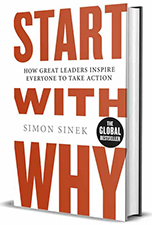
Just as the title says, “Start with Why” explores the importance of understanding and communicating the “why” behind what we do. Sinek argues that people are more motivated by purpose and meaning than by simple rewards or incentives and that organizations that can articulate their “why” are more likely to inspire loyalty, trust, and commitment from employees and customers.
“Atomic Habits” by James Clear
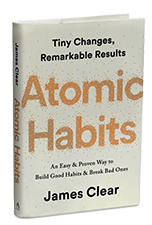
This book provides a practical and evidence-based approach to building better habits. Clear argues that small, incremental changes can lead to significant improvements over time, and that the key to lasting change is to focus on the systems and processes that drive behavior. This best coaching book is a definitive guide to how humans create habits.
“Drive: The Surprising Truth About What Motivates Us” by Daniel H. Pink
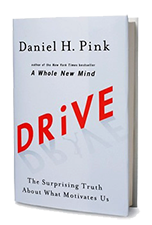
This book explores the science of motivation and offers insights into what drives human behavior and power. Pink argues that traditional motivational strategies, such as rewards and punishments, are often ineffective and can even be counterproductive. Instead, he offers a new approach based on the principles of autonomy, mastery, and purpose.
“Mindset: The New Psychology of Success” by Carol S. Dweck

Dwerk explores the idea that a positive mindset, or the way we think about our abilities and potential, has a profound impact on our success in life. She argues that there are two main mindsets: a fixed mindset, in which people believe that their abilities and intelligence are fixed traits that cannot be changed, and a growth mindset, in which people believe that their abilities and intelligence can be developed through hard work, perseverance, and learning. As a mentor, this is a great book to recommend to a mentee. Changing the way our mind processes information can be the key to a better life.
“The Inner Game of Tennis” by W. Timothy Gallwey

Although this popular book is specifically focused on tennis, it made the list of best coaching books because the principles can be applied to coaching in any field. Gallwey explores the mental aspects of performance and provides strategies for helping clients overcome self-doubt, anxiety, and other psychological barriers that can hold them back.
Best Coaching Books for Leadership
“The Five Dysfunctions of a Team” by Patrick Lencioni

This book explores the common obstacles that prevent teams from achieving their full potential. Then, it provides practical advice and exercises for overcoming these dysfunctions, such as building trust through vulnerability, encouraging healthy conflict, clarifying team goals and expectations, establishing clear roles and responsibilities, and focusing on measurable results. Team leaders love this book.
“Leaders Eat Last” by Simon Sinek
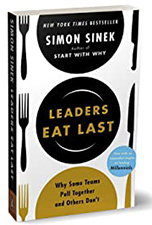
Leaders Eat Last explores the importance of leadership in creating a culture of trust, collaboration, and high performance. Sinek argues that if you want to influence people, great leaders need to prioritize the needs of their team members and create a sense of safety and belonging. This will inspire greater loyalty, commitment, and innovation.
“The One Minute Manager” by Ken Blanchard and Spencer Johnson
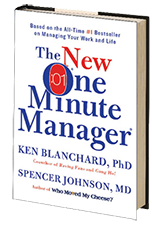
This book presents a simple and effective approach to managing people and achieving success. The book is organized around three core principles: goal setting, praising, and reprimanding. Regardless of leadership style, this book provides the best ways to manage people and achieve success.
“The Coaching Habit: Say Less, Ask More & Change The Way You Lead Forever” by Michael Bungay Stanier

This best coaching book offers a practical, straightforward approach to coaching that can be applied to a wide range of situations. Stanier provides readers with seven essential coaching questions that can help them guide their clients to better outcomes. He also offers tips for overcoming common coaching challenges and provides real-world examples of successful coaching conversations. Even the world’s best coaches use this book as a foundational tool for sessions.
“Crucial Conversations: Tools for Talking When Stakes Are High” by Kerry Patterson et al.
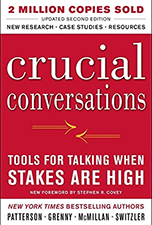
The book introduces the essential skill of a “crucial conversation,” which refers to any conversation in which the stakes are high, emotions are strong, and opinions differ. The authors argue that crucial conversations are a normal part of life and can have a significant impact on our relationships, careers, and overall well-being. This is a great resources for navigating difficult conversations.
Best Coaching Books for Business
“The Pumpkin Plan” by Mike Machalowicz
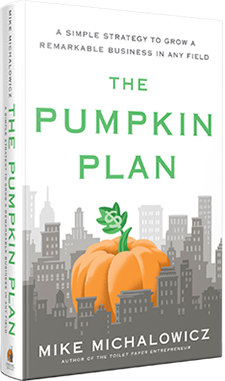
“The Pumpkin Plan” uses the metaphor of growing giant pumpkins to guide entrepreneurs toward success. It emphasizes focusing on valuable clients, called “pumpkins,” and nurturing them for business growth. The book provides strategies for identifying ideal clients, cutting off unprofitable ones, and dedicating resources to nurture the right customers for long-term success.
“Good to Great” by Jim Collins
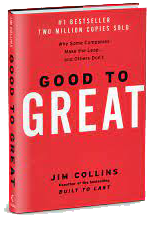
The book is based on a comprehensive study of 11 companies that achieved sustained greatness over a 15-year period earning it a place on this list of best coaching books. And, it presents a number of key insights and principles that are relevant to businesses of all types and sizes.
“The Lean Start-Up” by Eric Ries
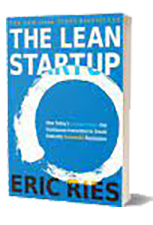
The Lean Start-Up provides a practical guide to building and scaling a successful business in today’s rapidly changing marketplace. The book introduces the concept of “lean start-up” methodology, which emphasizes the importance of experimentation, iteration, and continuous learning in the early stages of a new venture.
“The 12 Week Year” by Brian P. Moran and Michael Lennington

This book challenges the traditional annual planning cycle and introduces a new system of goal-setting and execution based on a 12-week cycle. The book argues that annual goals and plans can lead to procrastination and a lack of urgency, while a 12-week cycle provides a more focused and results-oriented approach to achieving your goals and making you a better leader.
“The Four Hour Work Week” by Timothy Ferriss

This book challenges traditional notions of work and productivity. The book advocates for a “lifestyle design” approach to work and life, in which individuals maximize their freedom and flexibility while minimizing the time and energy they spend on work.
“High Output Management” by Andrew Grove

The book focuses on the art and science of management, providing practical guidance on how to build and lead high-performing teams. Grove argues that effective management requires a combination of technical knowledge, people skills, and strategic thinking, and he provides numerous examples and case studies to illustrate his points.
“Never Split the Difference: Negotiating As If Your Life Depended On It” by Chris Voss
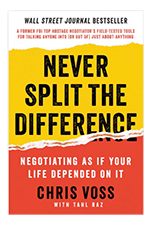
The book challenges traditional approaches to negotiation, arguing that the goal of any negotiation should be to achieve a “win-win” outcome rather than simply dividing the pie. Voss emphasizes the importance of empathy and active listening in the negotiation process, and he provides numerous examples and case studies to illustrate his points.
“Relentless: From Good To Great To Unstoppable” by Tim S. Grover
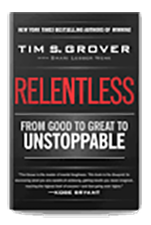
The book challenges conventional wisdom about what it takes to achieve greatness, arguing that talent and hard work are not enough. Instead, Grover emphasizes the importance of mindset, attitude, and relentless effort in achieving success.
“Co-Active Coaching: Changing Business, Transforming Lives” by Henry Kimsey-House, Karen Kimsey-House, Phillip Sandahl, and Laura Whitworth
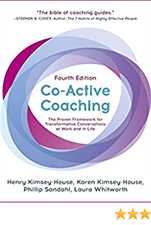
This book is a comprehensive guide to the Co-Active Coaching approach, emphasizing collaboration and partnership between coach and client. It includes practical tools and techniques for building strong coaching relationships and tips for navigating difficult coaching situations.
Conclusion
Good news: These best coaching books are easily found on Amazon or at your local bookstore and most of them have additional resources for coaches on their websites. These books provide a wealth of knowledge and insights for coaches looking to improve their skills and help their clients achieve their goals. They will push you from your comfort zone and challenge your thinking in new ways. Whether you’re a seasoned coach or just starting out, these resources can help you become more effective and successful in your coaching practice.
